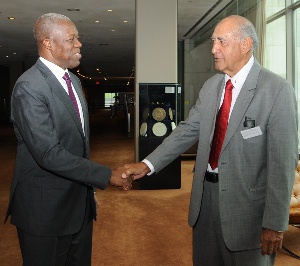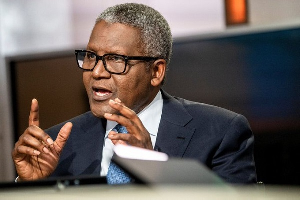The Vice President Paa Kwesi Amissah Arthur has assured that the government is committed to ensuring that there is a remarkable reduction in the spread of HIV/AIDs in the next five years.
He indicated that measures have been put in place to ensure that the HIV/AIDs epidemic trail is broken.
According to him, the country will make sure that over forty percent of the Ghanaian populace know their HIV/AIDS status by the year 2020.
‘Mr. President, we are committed that no one must be left behind, we are working to accelerate access to HIV testing and treatment towards the 9090 target, Ghana has incorporated the fast track target in our newly developed national HIV/AIDs strategic plan, in the next five years, we are committed to breaking the trajectory of HIV epidemic.
As part of efforts to close the testing gap and sustainably place and keep Ghana and keep people with HIV treatment, Ghana recently launched a national campaign to accelerate testing and actions towards universal treatment, we project that over 40% of the population knowing their HIV status by the year 2020, we are committed to this ambitious target through the mobilisation of people and resources with the support of our partners. We adopt a treat all policy,’ he promised.
Addressing a High level meeting on ending AIDS in New York, USA (UN Headquarters), he observed that HIV/AIDs continues to spread in the country.
‘Notwithstanding our achievements, a number of challenges remain, HIV infections continue to spread, the majority of persons living with HIV are not yet on treatment, women are disproportionately affected, stigma and discrimination persists, comprehensive knowledge of HIV in the 15-24 age group remain slow and sustained supply of HIV commodity is a challenge,’ he said.
He indicated that there was reduction in the spread of HIV/AIDs between 2009 and 2014, praising civil society groups, private sector and development partners for working assiduously in reducing the spread of HIV.
‘Leadership commitment at various levels and across multiples actors including the private sector, development partners and civil society groups have contributed to this progress, between 2009 and 2014 we (Ghana) recorded a 30% reduction in new HIV infections and 43% reduction in AIDs related deaths, civil society and community based organisations have been remarkable in extending the reach and the intensity of the national response to communities and vulnerable groups. The global fund, PEPFA and the UN system have also been committed,’ he remarked.
General News of Thursday, 9 June 2016
Source: ultimate1069.com
We will break HIV/AIDs trail - VEEP
 Vice-President Amissah-Arthur and former President of Fiji, Mr. Ratu Epeli Nailatikau in a handshake
Vice-President Amissah-Arthur and former President of Fiji, Mr. Ratu Epeli Nailatikau in a handshake












